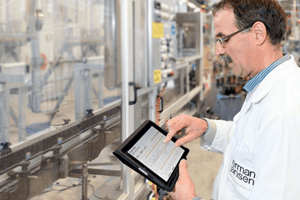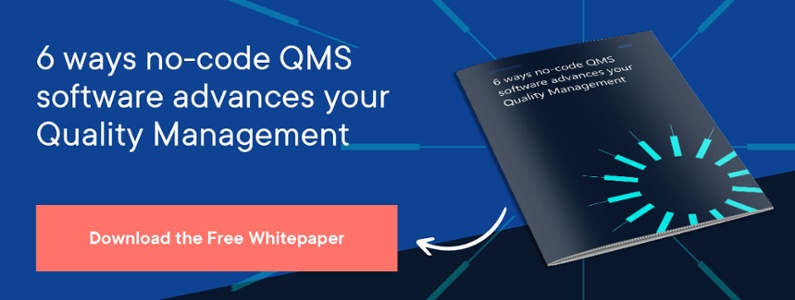It is our ambition to help you to make your quality management smart and omnipresent. Apart from the technical features we offer, our license model is an important tool to help you establish a quality culture and omnipresent platform. This blog tells you all about it.
How will you benefit from No-code quality management?
The two faces of user-friendliness
In one of our previous blogs, The two faces of user-friendliness, we drew a sharp distinction between user-friendliness that traps users (Apple is the classic example) and user-friendliness that is empowering, which is how we do things.
Not that we are in any way more altruistic or nicer than the disciples of the late Steve Jobs (well, probably a little nicer): our vision of inclusiveness is part of a commercial strategy, perhaps every bit as hard-nosed as Apple’s.
And just as Apple is obsessively consistent in how it carries out its strategy, we have made inclusiveness (or omnipresence if you want the grown-up term) part of everything we do: how we build our software, how we sell it, how we implement it, how we put you in control.
Let’s take a look at our business model first.
Our business model is our product
We are forefronting the business model for two reasons. First, because it is not industry standard, and second, because we have a bad habit of mentioning our licensing structure as an afterthought when it goes to the heart of our vision of what quality management is all about.
Of course, if our no-code platform didn’t work, it would not matter how we sold it, but that is missing the point. Our commercial approach is one of the reasons our solution works – one of its functionalities, you might even say.
The licensing model we operate is site-based, not user-based. In other words, everyone is welcome, no one is excluded.
To us, this is no more than common sense. A system cannot claim to be inclusive or empowering if it penalizes you for giving your colleagues access to it.
Omnipresence must mean frictionless omnipresence, and there is no greater friction than cost!
The AlisQI business model actively encourages the wider organization to contribute to quality, an invitation that is meaningless if the platform you have implemented turns out to be user-hostile, slow, inaccurate, confusing, or fragmented.
Time to look at some other aspects of the AlisQI solution.
Inclusivity
The first point to make is that a modern quality management solution is within reach of almost all manufacturing companies, not just larger factories as is often assumed. Our customer base ranges from Fortune 500 businesses to production start-ups, worldwide, and across all sectors.
Factory workforces are very diverse, and the grasp of English or the native language spoken by quality managers will vary greatly. It is vital that these co-workers are not excluded, and that the quality dashboards intuitively reflect the quality processes going on at the shop floor. Uptake of a new system will be quicker and more thorough if there is no frustrating learning curve, and if the benefits become apparent from day one.
Implementation is key. Nothing gets a workplace on the wrong foot with a system or solution more quickly than a lengthy and expensive implementation project. The AlisQI platform is straightforward to roll out because we built the software with the end user in mind, and not to inflate our own consultancy bills.
Here it is interesting to point out that our ROI calculator, which is based on feedback from our customers, does not compute the cost of implementation. Why? Because our involvement in getting you started is so minimal, it does not significantly impact how quickly you are seeing a return on your investment. And we repeat, these ROI figures do not reflect what we think or assume, but what our customers experience when they deploy AlisQI.

You're the expert
A remark made by a quality manager at a chemicals conglomerate really encapsulates our approach to implementations.
She says: “The department managers each set up their own processes in AlisQI. This is really beneficial since they know their processes best. The teams were able to adopt AlisQI very quickly because they recognized their processes.”
The AlisQI software puts the experts in control.
In a way, ‘implementation project’ is a slight misnomer. Certain sub-processes can go live within only a few hours and the project as such never ends because manufacturers constantly adjust their processes in line with their internal needs and the changing legislative landscape.
You are always implementing changes, quickly and effectively, and without a consultancy bill.
Of course, there will be some input from us and in our next blog, we shall look at some typical implementation timelines.
If you want to find out more about how the AlisQI platform empowers all your colleagues, download our whitepaper below.



